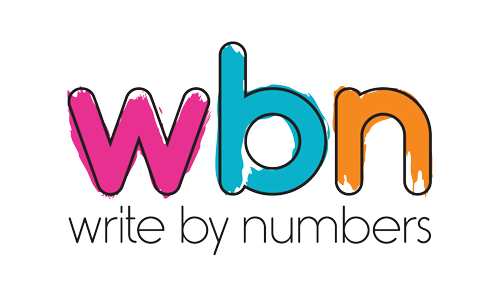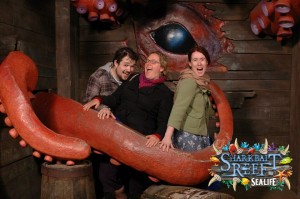Election night in WBN Towers went something along the lines of: watch rolling news in a vaguely obsessive compulsive manner, order pizza, discover that said pizza wasn’t as good as it used to be and thus blame David Cameron for affecting crust quality already, rubbish the exit poll (no one exit-polled us. In fact no one has exit polled me ever), drink wine, feel amused at the army of young people lifting ballot boxes in Sunderland (“Child labour up North – they better get used to it”), drink more wine, talk a lot about voting problems – and which polling station in Lewisham it had been that continued voting until 10.30, feel pain when the Conservatives make their first significant gains, WHERE ARE THE RESULTS?, shout loudly when Tooting stayed Red, generally be a little bit confused, drink more wine, indulge in calculations about seats needed, concede we might have been a bit wrong re: exit poll, feel sad for Dr Evan Harris (in twisty, turvy nature of fate someone who’d been MP for everyone sat in the room at various points during the previous decade), still be confused, fall asleep for twenty minutes somewhere around 5.00am, wake up with head in sofa cushion and discover am even more confused, swap wine for water, what – Lewisham have only just started counting?, like Caroline Lucas lots, conclude that we’re not the only ones who are confused as Nick Clegg retains his seat, COFFEE. And – er, who’s in charge exactly?
Along with what I suspect is every playwright in the country Charlie and I immediately wanted to write a play about the events (we’re now expanding to a six part television series). But the need to do contracted work that didn’t have anything to do with the election and sleep and whatnot filled up the next 24 hours. So I was rather excited (and impressed) that supporting wall had gathered together five hardy writers and (possibly) a copious supply of pro-plus, locked them in a room at 10.00pm on 6th May and made them write a short play in reaction to election day. Then merely one day later staged them. Things like this make me punch the air in delight – not only are they a little bit insane in the amount of work (and lack of sleep) that has to go into them but they demonstrate exactly how theatre can react to the world around it.
As Producers Ben Monks and Will Young (no, not that Will Young) noted the writers weren’t reacting so much to a result as to a question. And I was interested with what answers (or not) the five writers would dream up.
But…erm, it quickly became apparent that (on the whole) the writers weren’t reacting to election night (as the publicity suggested) as much as they were reacting to the election campaign (or, in one case, a rather generic election night). Which is all well and good, and in another type of evening, I’d have been very much up for a bit of campaign gazing. But I was expecting quick fire responses to what was becoming apparent was the most dramatically interesting election night of my lifetime. I couldn’t help but feel that aside from a couple of references (hello, Nigel Farrage) there was no reason at least three of the plays couldn’t have been written at a more leisurely pace (with all the tightening and editing that would have allowed).
The stand out piece – that had me from the moment its premise was announced if I’m honest (a group of prisoners watch election night on television) – was Anders Lustgarten’s Bang Up. Not only did it have a genuinely provocative premise (Prisoners can’t vote after all) it also had something which, I hate to say, was missing – or unintelligible – from the other plays: a politically beating heart. Which is before I get to the part about it being genuinely funny – so much so that I found myself writing down lines (“You winning Sunderland is like getting an STI at a Stag Party. Unfortunate but not exactly unexpected”. “I don’t understand how you’re a Conservative” “Why?” “You’re black and a criminal”. “We need change. Yes, that’s right – change is what we’ll be living on for the next five years under you”). As with any hastily written play there were problems (the ending jarred) but I hope Lustgarten continues with this piece – I’d certainly pay to see its final outcome.
In some respects the evening felt like a homage to other playwrights (Rex Obano gave us vintage Harold Pinter, Che Walker channelled Caryl Churchill’s Far Away and Phil Wilmot even went as far subtitling his play After Uncle Vanya). What I didn’t get was five distinctive voices (though there were five distinctive styles) on the events of May 6th 2010. And – schooled as I am by the Goldsmiths method – there was a definite lack of basic research going on (I know, I know, but pro-plus, coffee and a quick google about how PPCs are chosen wouldn’t have hurt). And, erm, other than actual politicians, no one does The Thick of It as well as The Thick of It so – stay away.
When I discovered that the writers had to deliver scripts by 3.00pm on Friday I wondered if the timings had led to some of the problems. My experience of the election night (if we take out the wine) would mainly have been characterised by mild terror, mild (blind) hope and confusion. To react to election night, really, you couldn’t have started to write until morning because the story took so long to play out. Did that impact? What parameters were given to the writers? And, out of interest, how politically engaged (or disengaged) did the writers consider themselves to be?
I’d like to think I’m fairly aware of the compromises that have to be made by shows written and produced in such a short space of time (both as a Writer and as a Producer) and my expectations (and enthusiasm) were for these reasons rather than against them. I guess – I wanted more. I wanted aspirations and anger and fire and triumph and loss and hope and – well, everything election night 2010 felt like to me.

